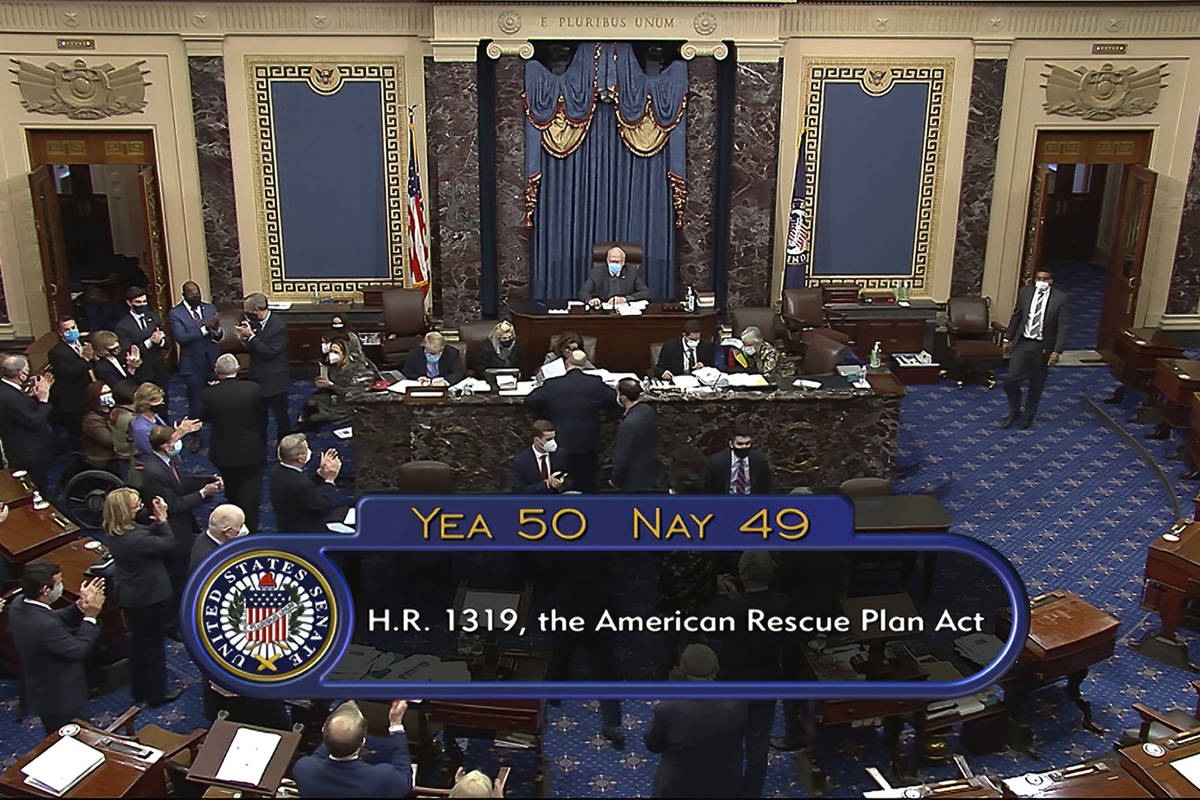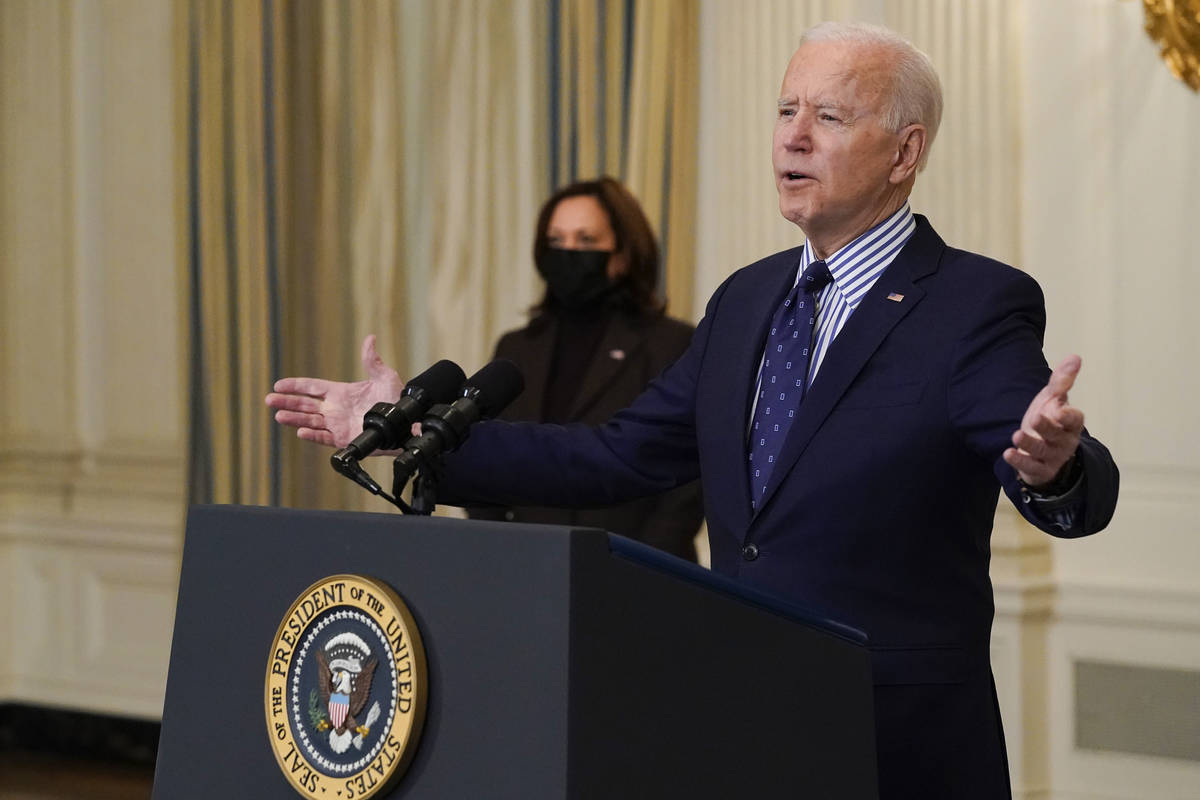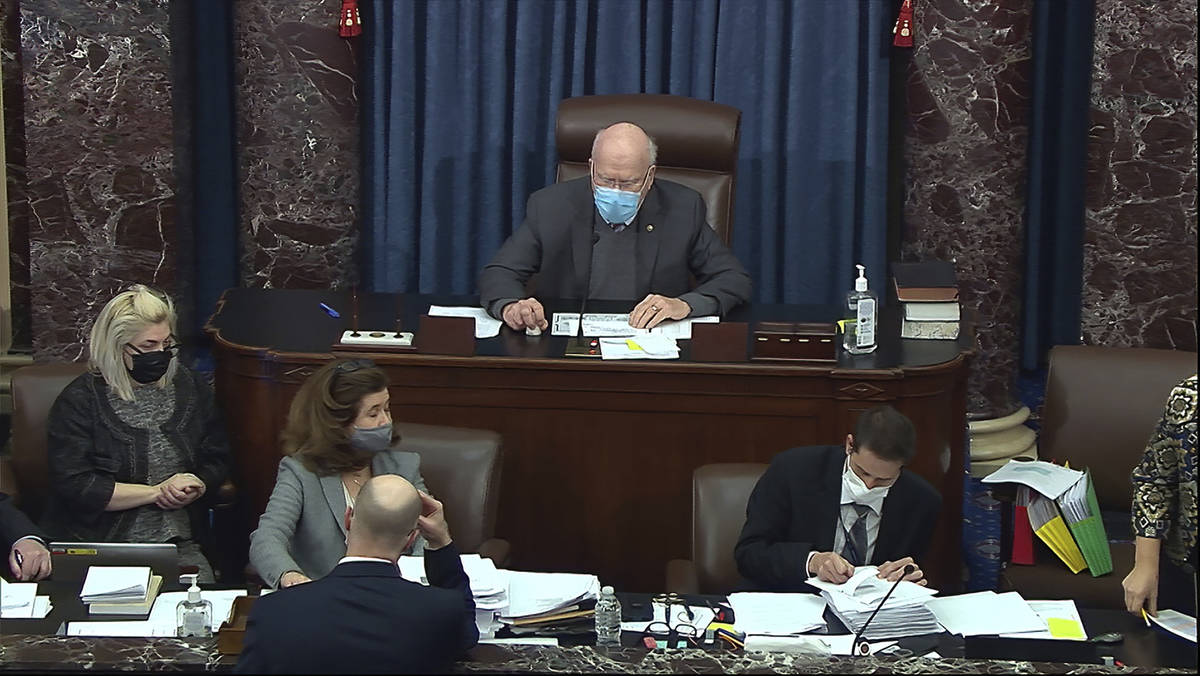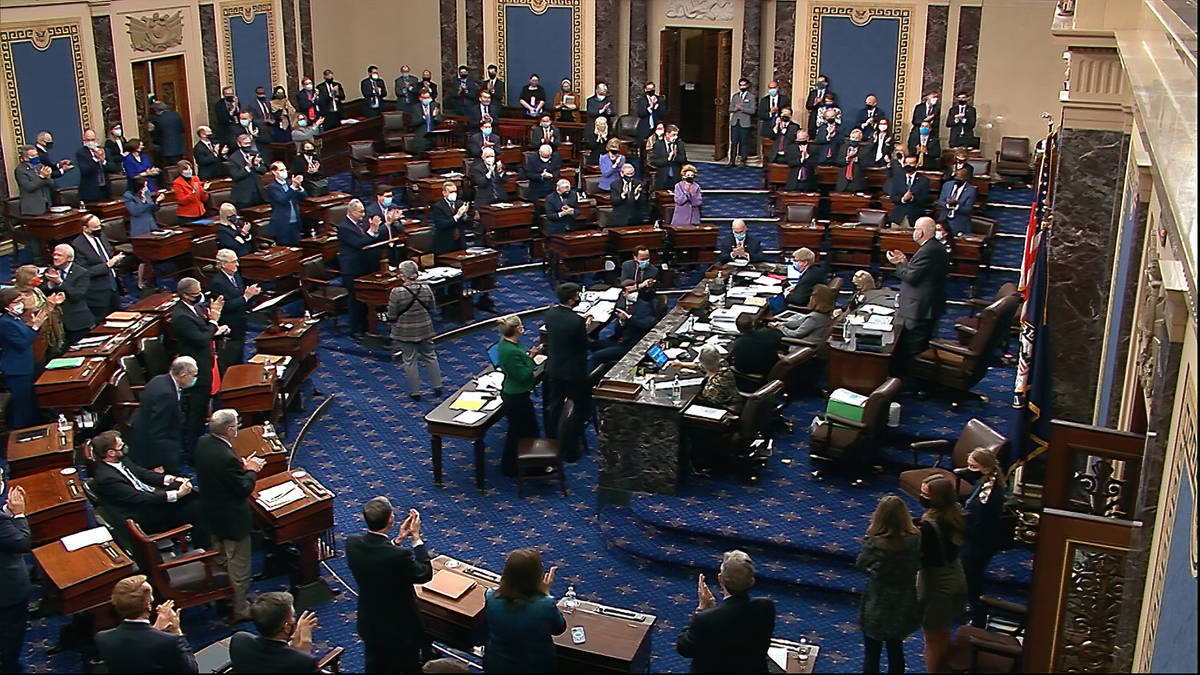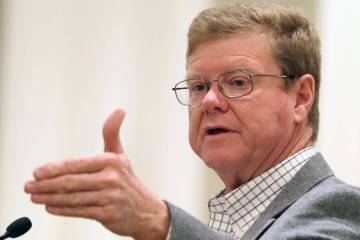Senate passes $1.9T coronavirus relief package
WASHINGTON — President Joe Biden won a major victory Saturday when the Senate narrowly passed a $1.9 trillion coronavirus rescue package and the linchpin of his efforts to defeat the pandemic and lift the county out of the economic downturn.
The Senate voted 50-49 to pass the massive bill that includes $350 billion for states and cities, including more than $4 billion for Nevada that could help with budget shortfalls and recovery measures.
In a White House appearance after the vote, Biden noted the death toll of the COVID-19 virus, the millions thrown out of work and the food banks that sprung up, and the struggle to produce, administer and deliver vaccines.
“This nation has suffered too much for much too long,” Biden said.
The president said the bill would help get every American vaccinated “sooner rather than later.”
“This plan puts us on a path to beat the virus,” Biden said.
The legislation includes direct payments of $1,400 for people earning less than $75,000 per year, or $2,800 for a couple earning less than $150,000. But it caps benefits at those amounts, instead of phasing direct payments to higher income groups.
The bill also extends unemployment benefits but reduces the federal amount from $400 per week to $300 per week.
Biden has sought the legislation to help unemployed and working families, as well as small businesses which would be eligible for an increase in loans, and provide money for schools to reopen with modifications. The bill also ramps up production and distribution of vaccines and expands COVID-19 testing.
“Help is on the way,” said Senate Majority Leader Chuck Schumer, D-N.Y.
Senate Republicans supported some measures in the bill but balked at the price tag. Sen. Susan Collins, R-Maine, offered an amendment to substitute the bill for another at $650 billion.
Republicans also noted the improving economy, with restaurants opening and unemployment improving as people come back to work.
Despite numerous objections, negotiations and a full night of voting on amendments, Democrats passed the bill on narrowest of margins early Saturday afternoon.
Nevada Democratic Sens. Catherine Cortez Masto and Jacky Rosen both voted with their caucus to pass the bill. Republican Sen. Dan Sullivan of Alaska did not vote, giving Democrats the 50-49 majority.
“My priority is beating the virus, safely reopening our schools, and rebuilding our economy,” Cortez Masto said in a statement.
She added that Nevada has experienced an extremely challenging year and the bill would address the needs of working families.
Rosen said the bill “will make good on our promise of direct payments to Americans in need and extend enhanced unemployment relief and complete health insurance premium coverage for Nevadans who have faced job losses through no fault of their own.”
Indeed, the collapse of the hospitality and tourism industry after the pandemic struck forced thousands of layoffs and furloughs in Nevada, particularly in Las Vegas and Reno.
The state still has one of the highest unemployment rates, at 9.2 percent in December, below only Hawaii, according to the U.S. Bureau of Labor Statistics.
Tourism, health care
Nevada’s House delegation backed the insertion of $450 million in funding for the Economic Development Administration to help states, like Nevada, recover from the loss of tourism revenue.
That amount was upped the Senate to $750 million at the insistence of other lawmakers like Cortez Masto, Rosen and Sen. Lisa Murkowski, R-Alaska, a state that also relies heavily on tourism.
Rep. Dina Titus, D-Nev., chairwoman of the House Transportation and Infrastructure subcommittee on economic development, with oversight of the EDA, said she was proud to put her mark on the legislation with funding targeting tourism states.
When the bill is signed into law, Titus said “it will be the first time that the Economic Development Administration will be required to specifically aid communities that are suffering from a decline in travel and tourism.”
Cortez Masto and Rosen also worked to expand COBRA health insurance coverage to furloughed and unemployed workers. The government subsidy in the bill rose from 85 percent to 100 percent in the Senate bill.
Cortez Masto said the COBRA language she secured in the legislation “protects health care access for tens of thousands of Nevada workers.”
The bill also includes $31 billion for Native Americans to help battle the pandemic, Rosen said. She noted that Nevada has 27 tribes that would be helped with increased funding for schools, health care and other needs.
A Senate battle over a provision in the House bill to raise the minimum wage failed when two Democratic lawmakers, Joe Manchin of West Virginia and Kyrsten Sinema of Arizona, objected to raising it from $7.25 to $15 per hour.
It was stripped out of the Senate bill, and a later amendment by Sen. Bernie Sanders, I-Vt., to restore it failed to receive the 60 votes necessary.
Because of Senate changes to the bill, the legislation now goes back to the House for passage. Biden wants the package at the White House by March 14 when current unemployment benefits run out.
Contact Gary Martin at gmartin@reviewjournal.com. Follow @garymartindc on Twitter.



